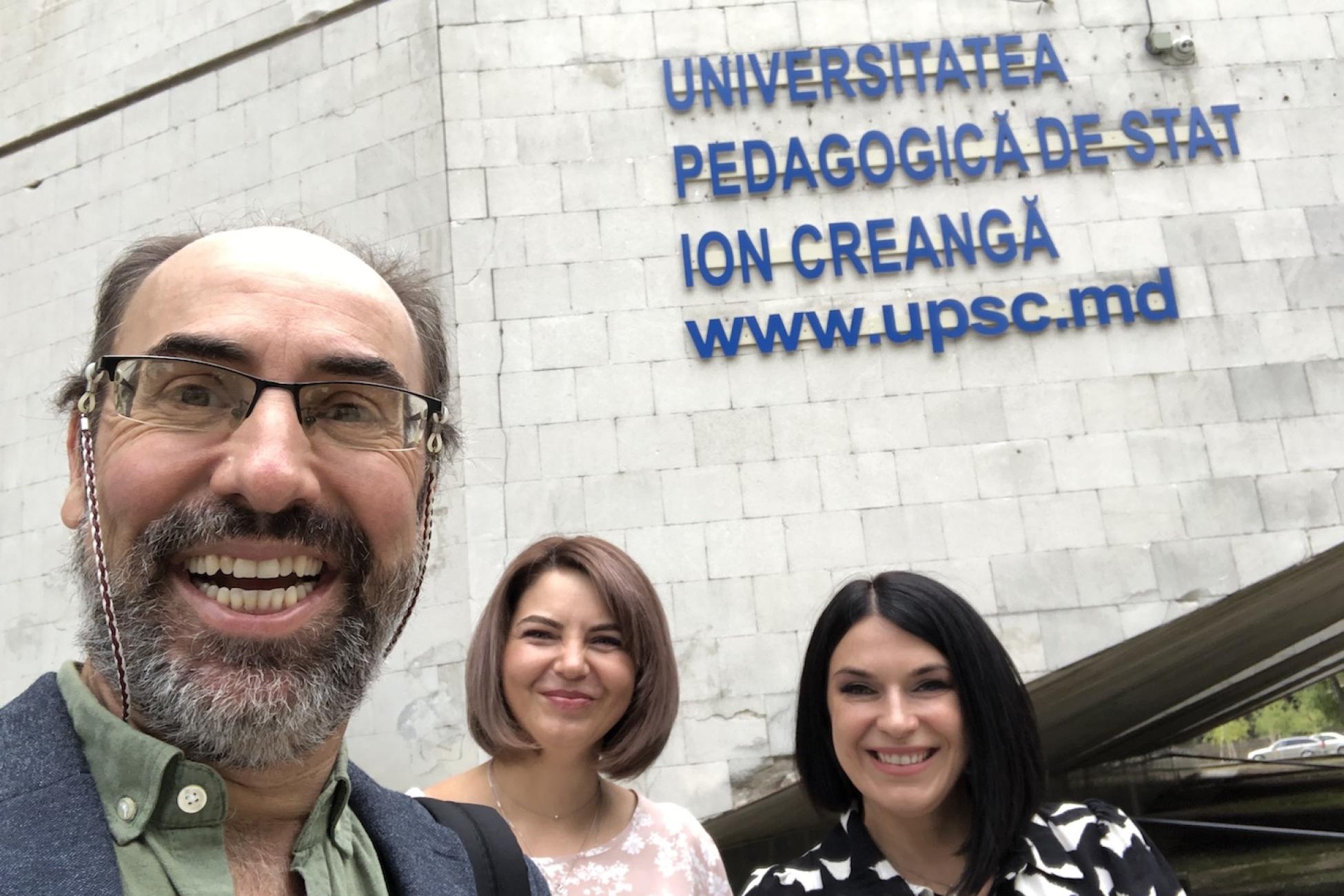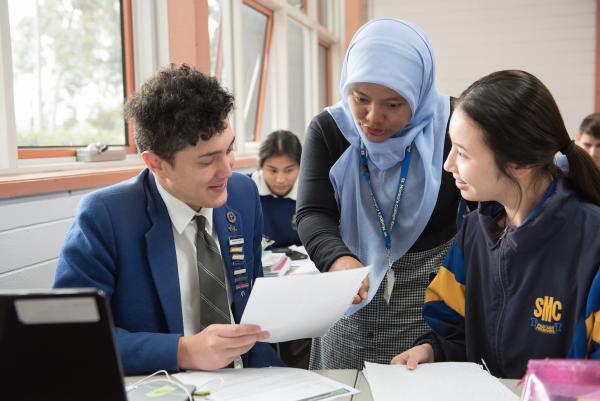“We’ve got you tomorrow for second pair.”
This is what one of my students told me at the beginning of fall semester ‘22.
I was clueless. Not totally clueless—I understood the language of a student telling their teacher “we’ve got you for _____” but usually the fill-in-the-blank is the name of a course: Writing, Speaking, Vocabulary, etc.
In this case, at Ion Creanga Pedagogical State University (“UPSC”), each academic day is constituted of four “pairs”: 8:00-9:30; 9:40-11:10, 11:30-1:00; and 1:10-2:40. Technically each time block is a pair of 45-minute classes.
I hadn’t learned the language of UPSC yet and was caught off-guard when my student said that to me, even though this is what I train international students to do when they come to America.
Every university has its own language
When I’m prepping students from abroad to come to the U.S. for high school or university, I always tell them this: every school has its own lingo and you need to learn it.
It’s not in any textbook but is mainly spoken language and language found on social media.
If you’re coming to Ohio State University and want to go to the gym, you don’t “go to the gym,” you “go to the RPAC.” This is the Recreational/Physical Activities Center. You know, RPAC.
After the library, I’m going to the RPAC. I’ll meet you at the RPAC. You’ll never guess who I saw at the RPAC. One of my classes is actually at the RPAC.
In a regular world, this makes no sense. An outsider would be completely befuddled and that’s what I was at first at UPSC–an outsider. The goal is to become an insider.
It isn’t just extracurricular activities that have their own language. Every university has its own LMS (learning-management system), and at OSU, ours is called Carmen. This is a reference to our very moving alma mater, Carmen Ohio.
Oh, and it’s only if you’re in the midwest that “OSU” is Ohio State University. If you’re in the south, it is Oklahoma State University, and if you’re in the northwest, it is Oregon State University. Not confusing at all.
Every university also has its own schedule
If you go on the OSU website, you can see the official academic calendar of the university for the next five years. Five years. Down to the exact day of every break and holiday.
Where I am now, fall semester starts on September 1. Except next year when that’s a Sunday, so classes start on the 2nd. Easy enough.
Oh, and in case you were wondering, spring semester starts on February 1st, except when there’s a war next door and the country you’re currently in (Moldova) was getting its heating oil from the perpetrator (Russia) which then cut it off to your country for supporting the country they barbarically invaded (Ukraine).
So in that case, spring semester gets postponed until Feb 15 so that’s two less weeks of students shivering in their seats. Makes sense, right? All you can, and should, do is go with the flow.
You can see how things in other parts of the world might be a little different and require some flexibility. The rest of the world isn’t like Ohio—thank goodness! This the beauty, excitement, and adventure of traveling.
Flexibility is the key
It is important to realize that systems aren’t the same everywhere and there’s good reasons for that. One reason we don’t have calendars for the next five years at my university in Moldova is just the incredible uncertainty of the world we live in.
Another reason is that Moldova is still a bifurcated world: one foot is stuck in Soviet concrete, while the other is trying to sprint to the EU. It’s easy to picture that not exactly working smoothly.
Did you notice anything missing in our daily class schedule I posted above? I did. Immediately. The first time I saw it the omission was obvious: LUNCH.
In Moldova, at least at the university level, there is no time for lunch. There’s a coffee break for 20 minutes in the middle of classes but that’s it. And the only answer I get about this is “that’s the way it’s always been.” (This schedule is in stark contrast to universities in China, which have at least a tow-hour break for lunch “and a short rest.”)
Expect the unexpected
Kurt Vonnegut had this to say about cultural relativity:
A first grader should understand that his or her culture isn't a rational invention; that there are thousands of other cultures and they all work pretty well; that all cultures function on faith rather than truth; that there are lots of alternatives to our own society.
What he says holds true in so many facets of life, but perhaps none so much as education. There’s a system here, it’s different than mine, but it functions pretty well. The teachers work hard, the students work as hard if not harder.
Could the system function better? Of course. Could ours be better in America? Hell yes. So who are we to judge.
Add this article to your reading list




